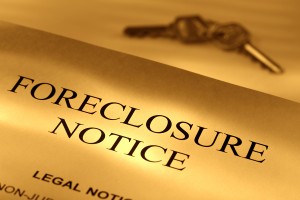 What happens to my SBA loan when my business fails?
What happens to my SBA loan when my business fails?
So your business is struggling, and you are wondering, what happens to my SBA guaranteed business loan?
What indeed…
Let’s answer that question by first understanding what the SBA guarantee actually means. The guarantee is actually for the BANK, not the borrower. Which means that if your business fails, the SBA will pay back a portion of the loan to the bank, assuming the bank has followed the necessary steps in servicing the loan (more on that in another post).
Many business owners falsely assume that the guarantee means that they are “off the hook”, and that the loan is satisfied by the guarantee. After all, the borrower paid 3% for this guarantee…it was insurance in case things didn’t work, right?
Unfortunately, this is not the case.
The SBA guarantee only protects the bank’s interest, and provides nothing but trouble for a borrower in default. This is because a bank that has this “insurance” policy acts very differently than one that may be exposed to a large loss from a defaulting commercial loan. The bank will do EVERYTHING in its power to protect that insurance policy, including shutting down a healthy, but struggling, company.
Moreover, the bank’s ability to work or be flexible with a company that is faced with defaulting on their SBA loan is severely limited by SBA regulations.
In short, the SBA is acting as an insurance company, and the bank is the client. The SBA doesn’t want to pay out unless they absolutely must, and so they limit the bank’s ability to be flexible with the borrower. I know, this sounds crazy, but it’s how the system is put together.
So, understanding that the guarantee is just for the bank, what happens next?
Well, after the SBA pays the bank, the SBA comes after you, the borrower, for the deficiency. The full deficiency. For example: if you borrowed $500,000, your company failed, and the bank got 80% repaid from the SBA ($400,000), you figure that your personal guarantee would be limited to owing the SBA $100,000, right? Wrong. The SBA will look to you for the full $500,000.
In any case, if you are faced with a default, you need help. Even though the bank has limited ability to be flexible, there are ways to settle the debt with the bank AND the SBA. Find yourself a knowledgeable, ethical, professional who can help you through this process and you can actually save your company, save your house, and settle the personal guarantees for pennies on the dollar.

In your example, you said the SBA pays the bank $400,000 of a $500,000 guaranteed loan, but pursues the borrower for the full $500,000. What happened to the remaining $100,000 that the SBA didn’t pay to the bank. Does the burrower pay the $100,000 to the bank AND the $500,000 to the SBA?
Rick, thank you for the comment. The SBA guarantee portion of the loan is for the bank to recover the bulk of the loan amount during a default situation. Once the bank files a claim with the SBA to recover their percentage of the guarantee “In this case $400,000” the bank is no longer able to pursue you for the deficient balance. With that being said, the bank could still stay involved to act as the servicing agent for the SBA to collect their debt. If the bank is not involved anymore then you would then receive a 60 day demand notice from the SBA for the full balance of $500,000. You would then have the ability to do what is called an Offer in Compromise which would be to make an offer for less than the full amount owed based on your exposure of your personal guarantee. Any balance that gets settled for less than the full amount is considered debt forgiveness and the bank and the SBA could send you a 1099, however this is not computed as ordinary income. Feel free to contact me anytime with any further detailed questions or concerns that you may have. Ryan@BridgeManagementConsulting – Ryan Lineham, Director of Client Services